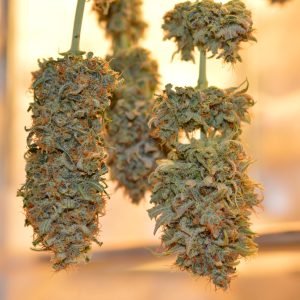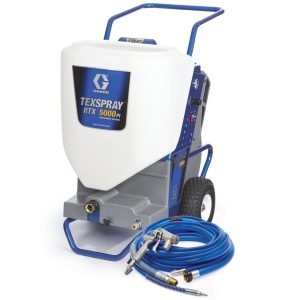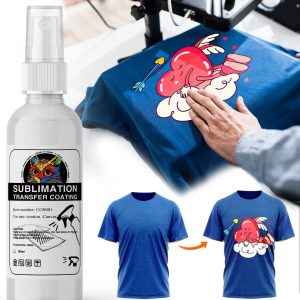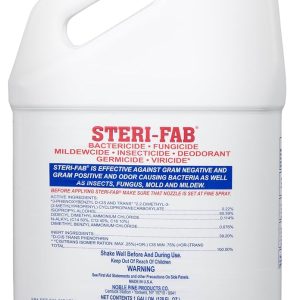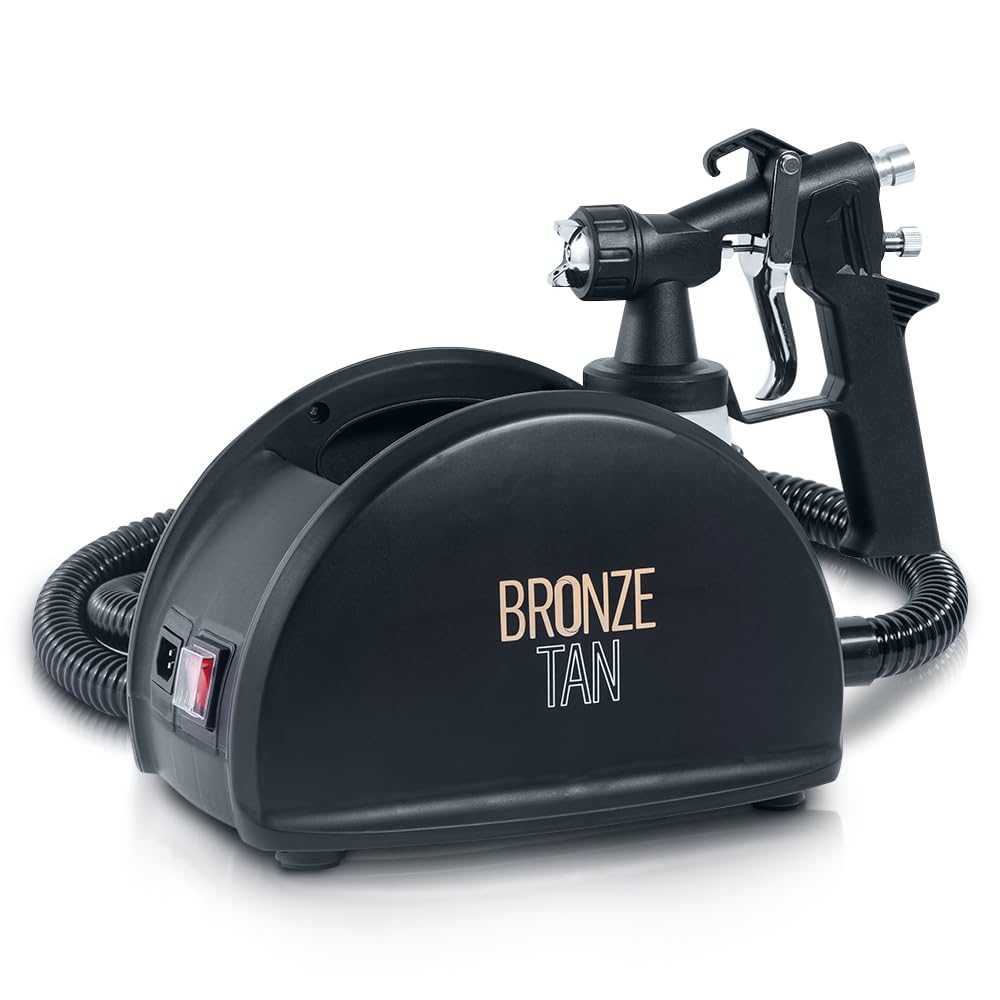
What is a Spray Tanning Machine and Why You Need One
A spray tanning machine is a specialized piece of equipment designed to deliver professional-quality sunless tanning solutions through advanced atomization technology. Unlike traditional tanning methods, these machines create an even, streak-free application that provides clients with a natural-looking golden glow without the harmful effects of UV exposure.
Professional spray tanning machines have revolutionized the beauty industry by offering salon owners and mobile tanning businesses a reliable method to generate consistent revenue streams. The global spray tanning market has experienced significant growth, with industry reports showing a compound annual growth rate of over 8.2% from 2020 to 2025. This growth demonstrates the increasing demand for professional spray tanning services and the equipment that makes them possible.
The core functionality of a spray tanning machine involves converting liquid tanning solution into a fine mist through compressed air systems. This process ensures uniform coverage across the client’s body, eliminating the patchy results often associated with manual application methods. Professional-grade machines deliver superior performance compared to consumer-level equipment, making them essential investments for businesses serious about providing high-quality tanning services.
Types of Professional Spray Tanning Machines
HVLP Spray Tanning Systems
HVLP (High Volume Low Pressure) spray tanning machines represent the gold standard in professional tanning equipment. These systems operate at 5-10 pounds per square inch (psi) with 45-62 cubic feet per minute (cfm), ensuring an even and fine flow of mist with minimal overspray. The low pressure design prevents solution waste while delivering consistent coverage patterns that professionals rely on for flawless results.
The advantages of HVLP systems include superior atomization quality, reduced solution consumption, and better control over application patterns. Professional technicians prefer these machines because they minimize client discomfort while maximizing solution efficiency. HVLP turbine systems typically feature multi-stage motors that provide consistent air pressure throughout extended use periods, making them ideal for busy salons processing multiple clients daily.
Key specifications for professional HVLP systems include wattage ratings between 550W and 700W, with higher wattage units providing more consistent performance during back-to-back sessions. For salon environments, industry experts recommend either 550W or 700W HVLP machines to ensure adequate performance under commercial use conditions.
LVLP Spray Tan Equipment
LVLP (Low Volume Low Pressure) spray tanning machines offer a different approach to professional tanning applications. These systems require more precision and perfection during application compared to other spray tanning machines, and they are typically more expensive than HVLP systems. The LVLP technology provides exceptional control for experienced technicians who prioritize precision over speed.
The application process with LVLP machines typically requires 10-15 minutes per client, making them suitable for premium service offerings where quality takes precedence over volume. These systems excel in situations where detailed contouring work is required, such as competition tanning or special occasion services where clients expect perfection.
Professional LVLP systems feature advanced pressure regulation technology that maintains consistent output even during extended use periods. The precision control offered by these machines makes them popular among experienced technicians who have mastered advanced application techniques and want to offer premium services at higher price points.
Airbrush Tanning Compressor Systems
Traditional airbrush tanning systems utilize compressor technology to deliver tanning solutions through specialized spray guns. These systems offer affordability advantages for new businesses while providing adequate performance for basic tanning services. However, they typically generate more noise compared to turbine-based systems and may require more frequent maintenance.
Compressor-based spray tanning machines work well for mobile tanning businesses where portability is essential. The compact design of many compressor systems makes them suitable for technicians who travel to clients’ homes or provide services at events. Despite their limitations compared to HVLP systems, quality compressor units can deliver professional results when operated by skilled technicians.
The main considerations with compressor systems include noise levels, maintenance requirements, and consistent pressure delivery. Professional-grade compressor units feature pressure regulation systems that maintain steady output, but they may struggle during extended use periods without adequate cooling time between sessions.
Essential Features in Professional Spray Tanning Machines
Motor Power and Performance Specifications
Motor power directly impacts the performance capabilities of professional spray tanning machines. High-quality units feature motors rated between 400W and 1000W, with commercial-grade systems typically operating in the 600W to 800W range. Professional systems are built to handle 25 to 40 tanning sessions per day, requiring robust motor construction to maintain consistent performance under demanding conditions.
The relationship between motor power and air volume delivery determines the machine’s ability to atomize tanning solutions effectively. Insufficient motor power results in uneven spray patterns, while excessive power can create overspray issues that waste solution and reduce application quality. Professional technicians should prioritize machines with variable speed controls that allow fine-tuning of air pressure based on solution viscosity and client requirements.
Heat generation management is another critical factor in motor design. Quality motors feature thermal protection systems that prevent overheating during extended use periods. This protection ensures consistent performance throughout busy service days while extending equipment lifespan through reduced thermal stress on internal components.
Spray Gun Technology and Nozzle Design
Professional spray guns represent the interface between machine and client, making their design critical to service quality. Advanced spray guns feature adjustable needle valves that control solution flow rates, allowing technicians to customize application intensity based on client skin types and desired color depth. The ergonomic design of professional guns reduces hand fatigue during extended use periods.
Nozzle technology has evolved significantly in recent years, with modern designs featuring precision-machined orifices that create consistent droplet sizes. The uniformity of droplet distribution directly impacts the final tanning result, with quality nozzles producing smooth, streak-free applications. Professional guns typically feature stainless steel construction that resists corrosion from tanning solutions while maintaining dimensional accuracy over time.
Maintenance requirements for spray guns vary based on construction quality and design complexity. Professional-grade guns feature easily replaceable components such as needles, nozzles, and seals, allowing technicians to maintain optimal performance through regular service intervals. Quick-disconnect fittings on professional guns enable rapid changeovers between different solution types during busy service periods.
Solution Capacity and Feed Systems
Professional spray tanning machines utilize various solution delivery methods, each offering distinct advantages for different business models. Gravity-feed systems rely on elevated solution containers that deliver tanning products through gravity-assisted flow. These systems offer simplicity and reliability while minimizing mechanical complexity that could lead to service interruptions.
Pressurized feed systems utilize compressed air to deliver solutions from sealed containers, enabling consistent flow rates regardless of solution levels. This technology proves particularly valuable during busy periods when consistent application quality is essential. Pressurized systems also accommodate thicker solution formulations that might not flow adequately through gravity-feed designs.
Solution capacity requirements vary based on business volume and service models. Mobile technicians often prefer compact systems with 1-2 liter capacities that balance solution availability with equipment portability. Salon-based operations may benefit from larger capacity systems that minimize refill frequency during busy periods while maintaining consistent service availability.
Top Professional Spray Tanning Machine Brands
Fuji Spray HVLP Systems
Fuji Spray has established itself as a leading manufacturer of professional-grade spray tanning machines through decades of innovation in HVLP technology. Fuji SUNLESS pro spray tanning machines are built for quality, convenience, and comfort, providing a pleasant tanning experience that results in smooth, even tans. The company’s commitment to quality construction and reliable performance has made their systems popular among professional technicians worldwide.
The Fuji product line includes multiple models designed for different business requirements and volume levels. Entry-level systems like the studioTAN series offer professional performance at accessible price points, while premium models provide advanced features for high-volume operations. Each system includes comprehensive warranty coverage and access to professional technical support services.
Professional technicians appreciate Fuji’s attention to ergonomic design and user-friendly operation. The company’s spray guns feature comfortable grips and intuitive controls that reduce operator fatigue during extended use periods. This focus on user experience translates into improved service quality and increased technician productivity throughout busy service days.
Norvell Professional Equipment
Norvell’s Pro HVLP Spray Tan System features award-winning reliability and durability designed to deliver back-to-back spray tans. The company’s systems are crafted with over three generations of experience in the tanning industry, providing technicians with equipment that delivers consistent results under demanding commercial conditions.
The Norvell approach to spray tanning machine design emphasizes ease of control and flawless spray patterns through smooth, even application passes. Their systems feature precision-engineered components that maintain consistent performance over extended service periods. Professional technicians value the reliability of Norvell equipment, particularly in high-volume salon environments where equipment failure can significantly impact business operations.
Norvell’s comprehensive approach to professional tanning extends beyond equipment to include training programs and technical support services. This holistic approach helps technicians maximize their investment in professional equipment while developing the skills necessary to deliver exceptional client experiences.
MineTan Professional Systems
MineTan Professional offers a full range of professional spray tan machines and equipment, including leading spray tan machines, spray tan guns, tanning tents, and accessories. The company caters to businesses at all stages of development, from startups to established operations seeking to upgrade their equipment.
The MineTan equipment line features systems designed for various business models, including fixed salon installations and mobile service providers. Their spray tanning machines incorporate modern technology with user-friendly operation, making them suitable for both experienced technicians and those new to professional spray tanning services.
Professional support services from MineTan include comprehensive training programs and ongoing technical assistance. This support structure helps ensure that technicians can maximize the performance capabilities of their equipment while maintaining consistent service quality that builds client loyalty and business growth.
Cost Analysis and ROI for Spray Tanning Machines
Initial Investment Breakdown
Professional spray tanning machines represent significant capital investments that require careful financial planning and analysis. Entry-level professional systems typically range from $800 to $1,500, while premium commercial-grade equipment can cost between $2,000 and $5,000. The initial investment includes not only the spray tan machine itself but also essential accessories such as spray guns, hoses, solution containers, and maintenance supplies.
Beyond the core equipment costs, new tanning businesses must budget for additional startup expenses including professional training, insurance, tanning solutions, client preparation materials, and marketing initiatives. A comprehensive startup budget for a mobile tanning business typically ranges from $3,000 to $8,000, while salon-based operations may require investments of $10,000 to $25,000 depending on facility requirements and equipment selections.
Financing options for professional equipment include traditional business loans, equipment leasing programs, and manufacturer financing offers. Many equipment suppliers provide flexible payment terms that allow new businesses to acquire professional-grade systems without depleting working capital reserves. These financing options often include maintenance and warranty coverage that protects the investment while ensuring consistent equipment performance.
Revenue Generation Potential
Professional spray tanning services command premium pricing that reflects the quality and convenience they provide clients. Average service pricing ranges from $35 to $75 per session, with specialized services such as competition tanning or bridal packages commanding higher rates. Mobile services often include convenience premiums that can add $10 to $20 per session compared to salon-based offerings.
A quality spray tanning machine enables technicians to complete 6 to 10 sessions per day, depending on service complexity and client requirements. Mobile technicians with efficient routing can generate $300 to $600 in daily revenue, while salon-based operations with multiple technicians can achieve significantly higher volume levels. The consistent quality delivered by professional equipment helps build client loyalty that generates repeat business and referral opportunities.
Seasonal demand patterns significantly impact revenue generation potential, with peak seasons typically occurring during spring and summer months when clients prepare for beach seasons and special events. Professional businesses often develop complementary services such as skincare treatments or retail product sales that help maintain revenue levels during slower periods while building comprehensive client relationships.
Operating Cost Considerations
Ongoing operating costs for professional spray tanning machines include solution expenses, maintenance supplies, equipment servicing, and replacement parts. Quality tanning solutions typically cost $15 to $25 per liter, with each session using approximately 60 to 120 milliliters depending on client size and coverage requirements. Solution costs represent 15% to 25% of gross service revenue for most professional operations.
Equipment maintenance requirements vary based on usage levels and equipment quality. Professional-grade machines typically require routine cleaning and component replacement to maintain optimal performance. Preventive maintenance costs average $200 to $500 annually for most professional systems, while reactive repairs can cost significantly more if equipment is not properly maintained.
Business insurance requirements for professional tanning services include general liability coverage, professional liability protection, and equipment coverage. Insurance costs typically range from $500 to $1,500 annually depending on coverage levels and business size. Many insurance providers offer specialized policies designed for beauty service businesses that provide comprehensive protection at competitive rates.
Setup and Installation Requirements
Space and Ventilation Considerations
Professional spray tanning services require adequate space allocation to ensure client comfort and optimal application results. Treatment areas should provide minimum dimensions of 8 feet by 8 feet to accommodate client movement and technician positioning during application procedures. Ceiling height requirements typically specify 8 feet minimum to prevent overspray accumulation and ensure adequate air circulation.
Proper ventilation systems are essential for maintaining air quality and removing airborne tanning solution particles. Professional installations should include exhaust fans capable of providing 6 to 10 air changes per hour within treatment areas. The ventilation system should create negative pressure that draws contaminated air away from both client and technician while preventing solution migration to adjacent areas.
Lighting requirements for professional tanning applications include multiple light sources that eliminate shadows and provide consistent illumination across the treatment area. LED lighting systems offer energy efficiency and color accuracy that helps technicians achieve uniform application results. Many professional installations include adjustable lighting controls that accommodate different client preferences and service requirements.
Electrical and Power Requirements
Professional spray tanning machines require dedicated electrical circuits that provide consistent power delivery without voltage fluctuations. Most professional systems operate on standard 120V household current, but high-performance units may require 240V connections for optimal performance. Electrical installations should include dedicated circuits with appropriate amperage ratings to prevent power interruptions during equipment operation.
Ground fault circuit interrupters (GFCI) are typically required for safety compliance in areas where moisture may be present. Professional installations should include GFCI protection at both the circuit breaker and outlet levels to ensure maximum safety protection. Emergency shut-off switches should be easily accessible to both technician and client in case of equipment malfunction or emergency situations.
Power quality considerations include voltage regulation and harmonic distortion that can affect equipment performance and lifespan. Professional installations may benefit from voltage conditioning equipment that protects sensitive electronic components from power quality issues. Uninterruptible power supply (UPS) systems can provide backup power during brief outages while protecting equipment from power surge damage.
Mobile Setup Configurations
Mobile spray tanning businesses require portable spray tanning machines and accessories that can be quickly transported and set up in various client locations. Professional mobile systems typically feature wheeled cases or transport carts that protect equipment during transport while enabling rapid deployment at client sites. Battery-powered systems offer complete independence from client electrical systems while providing professional performance levels.
Client preparation for mobile services includes protecting floors and furnishings from overspray while creating appropriate application environments. Professional mobile technicians utilize portable tanning tents or backdrop systems that contain overspray while providing privacy and comfort for clients. These systems should be lightweight and quick to assemble while providing adequate coverage for different room configurations.
Weather protection considerations for mobile equipment include moisture resistance and temperature tolerance that enable operation in various environmental conditions. Professional mobile cases should provide adequate protection from rain, humidity, and temperature extremes that could damage sensitive equipment components. Climate-controlled storage areas help maintain optimal equipment performance while protecting solution quality.
Maintenance and Care Best Practices
Daily Cleaning Procedures
Proper maintenance of professional spray tanning machines begins with comprehensive daily cleaning procedures that prevent solution buildup and maintain optimal performance. After each use session, technicians should thoroughly flush the spray system with appropriate cleaning solutions to remove residual tanning products that could clog nozzles or contaminate future applications.
The cleaning process typically involves disassembling removable components such as spray gun tips, needle assemblies, and solution containers for individual cleaning attention. Each component should be cleaned with manufacturer-approved solvents that dissolve tanning solution residues without damaging equipment surfaces. Ultrasonic cleaning systems can provide thorough cleaning of intricate components that are difficult to clean manually.
Air line maintenance includes regular purging procedures that remove moisture and solution residues from compressed air systems. Professional technicians should drain air tanks and moisture separators daily to prevent corrosion and maintain consistent air quality. Regular inspection of air lines and fittings helps identify potential problems before they impact equipment performance or service quality.
Preventive Maintenance Schedules
Professional spray tanning machines require systematic preventive maintenance programs that address potential problems before they cause equipment failures. Monthly maintenance procedures should include comprehensive inspections of all system components, including motors, pumps, spray guns, and electrical connections. Detailed maintenance logs help track equipment performance and identify patterns that may indicate developing problems.
Motor maintenance includes regular inspection of brushes, bearings, and cooling systems that ensure reliable operation under demanding conditions. Professional-grade motors typically require brush replacement every 500 to 1000 operating hours, depending on usage patterns and environmental conditions. Bearing lubrication and cooling system cleaning help extend motor life while maintaining consistent performance levels.
Spray gun maintenance involves regular replacement of wear components such as needles, nozzles, and seals that directly impact application quality. Professional technicians should maintain inventory of critical spare parts that enable rapid repairs without service interruptions. Manufacturer-recommended replacement intervals help ensure consistent performance while minimizing unexpected equipment failures.
Troubleshooting Common Issues
Spray tanning machine troubleshooting requires systematic approaches that identify root causes rather than addressing symptoms alone. Common performance issues include inconsistent spray patterns, reduced solution flow, and excessive noise levels that indicate potential component problems. Professional technicians should maintain troubleshooting guides that provide step-by-step diagnostic procedures for common problems.
Spray pattern inconsistencies often result from clogged nozzles, worn needles, or inadequate air pressure that affects solution atomization. Systematic cleaning procedures and component inspection typically resolve these issues while preventing future occurrences. Air pressure adjustments should be made gradually while monitoring spray quality to achieve optimal performance settings.
Solution flow problems can result from contaminated filters, worn pump components, or air leaks in solution delivery systems. Professional diagnostic procedures include pressure testing, flow rate measurements, and visual inspection of system components. Replacement of filters and seals often resolves flow issues while preventing more serious damage to pump components.
Advanced Features and Technology
Digital Controls and Monitoring Systems
Modern professional spray tanning machines incorporate advanced digital control systems that provide precise monitoring and adjustment capabilities. Digital pressure displays show real-time air pressure levels, enabling technicians to maintain optimal settings for different solution types and application requirements. These systems often include memory functions that store preferred settings for different services and client types.
Temperature monitoring systems help ensure consistent solution viscosity and application quality throughout service sessions. Digital temperature displays provide early warning of overheating conditions that could affect equipment performance or solution quality. Automatic shutdown systems protect equipment from damage while maintaining safety standards in professional environments.
Usage tracking systems monitor operating hours, session counts, and maintenance intervals to help technicians optimize equipment performance and plan maintenance activities. These systems often include alarm functions that alert operators when maintenance is required or when system parameters exceed normal operating ranges. Data logging capabilities enable analysis of usage patterns and performance trends over time.
Automated Solution Mixing Systems
Professional tanning operations increasingly utilize automated solution mixing systems that ensure consistent color results while reducing preparation time. These systems precisely blend base solutions with color additives to achieve specific shade requirements while maintaining batch-to-batch consistency. Automated mixing eliminates human error while providing documentation of solution compositions for quality control purposes.
Programmable mixing systems allow storage of multiple solution recipes that can be recalled and prepared automatically. This capability enables professional operations to offer consistent color matching services while maintaining efficient production workflows. Integration with inventory management systems helps track solution usage and automatically reorder supplies when inventory levels reach predetermined minimums.
Quality control features in automated mixing systems include viscosity monitoring, color matching verification, and contamination detection. These systems help ensure that every batch of solution meets professional standards while identifying potential problems before they affect client services. Documentation capabilities provide complete batch records for quality assurance and client service tracking.
Remote Monitoring and Diagnostics
Advanced spray tanning machines now feature remote monitoring capabilities that enable technicians to monitor equipment performance from mobile devices or computer systems. These systems provide real-time alerts for maintenance requirements, performance issues, or safety concerns that require immediate attention. Remote monitoring helps prevent equipment failures while optimizing maintenance schedules based on actual usage patterns.
Diagnostic systems provide detailed performance data that helps identify developing problems before they cause service interruptions. Professional support teams can access diagnostic information remotely to provide troubleshooting assistance and maintenance recommendations. This capability reduces downtime while ensuring that equipment operates at peak performance levels.
Predictive maintenance algorithms analyze equipment performance data to forecast component replacement requirements and maintenance needs. These systems help optimize maintenance schedules while minimizing unexpected equipment failures that could disrupt business operations. Integration with parts inventory systems enables automatic ordering of replacement components before they are needed for scheduled maintenance activities.
Choosing the Right Spray Tanning Machine for Your Business
Assessing Business Volume Requirements
Selecting the appropriate spray tanning machine requires careful analysis of current and projected business volume to ensure adequate performance capabilities. New businesses should consider their target market size, service pricing strategies, and growth projections when evaluating equipment options. Under-capacity equipment can limit business growth, while over-capacity systems may represent unnecessary capital investment.
Professional-grade systems typically specify performance ratings in sessions per day or operating hours that help match equipment capabilities with business requirements. Professional systems are designed to handle 25 to 40 tanning sessions per day, making them suitable for busy salon operations or high-volume mobile services. Smaller operations may find adequate performance in systems rated for 10 to 20 daily sessions.
Seasonal demand variations should be considered when evaluating equipment capacity requirements. Peak season demand may require equipment capable of handling significantly higher volumes than average annual usage levels. Professional businesses often benefit from equipment that provides adequate capacity for peak periods while offering efficiency advantages during slower periods.
Budget and Financing Considerations
Spray tanning machine selection requires balancing performance requirements with available capital and financing options. Professional-grade equipment represents significant investments that should be evaluated based on return on investment potential rather than initial cost alone. Higher-quality equipment often provides better long-term value through reduced maintenance costs and improved service quality.
Total cost of ownership analysis should include initial equipment costs, installation expenses, training requirements, maintenance costs, and financing charges. Professional equipment often includes comprehensive warranty coverage and technical support services that provide additional value while protecting the investment. Extended warranty options may provide cost-effective protection for businesses that depend heavily on equipment availability.
Financing options for professional equipment include traditional business loans, equipment leasing programs, and manufacturer financing offers. Many suppliers provide flexible payment terms that help preserve working capital while enabling acquisition of professional-grade systems. Lease-to-own programs may provide tax advantages while allowing businesses to upgrade equipment as technology advances.
Integration with Existing Business Operations
Professional spray tanning machines should integrate seamlessly with existing business operations and client service workflows. Salon-based operations need equipment that complements existing service offerings while maintaining efficient scheduling and client flow patterns. Mobile operations require equipment that supports flexible service delivery while maintaining professional quality standards.
Staff training requirements vary significantly between different equipment types and complexity levels. User-friendly systems with intuitive controls may reduce training time and costs while enabling faster staff development. Professional training programs provided by equipment manufacturers often include certification that adds credibility to business operations.
Client experience considerations include noise levels, treatment time requirements, and comfort features that affect service quality perceptions. Quiet operation is particularly important in salon environments where multiple services may be provided simultaneously. Efficient systems that reduce treatment time enable higher client throughput while maintaining quality standards.
Ready to invest in a professional spray tanning machine? Contact certified equipment dealers today to schedule demonstrations and receive personalized recommendations based on your specific business requirements. Professional consultation services can help you select the optimal system while ensuring proper installation and training for maximum return on investment.
For more information about tan for spray tan machines and professional tanning solutions, explore our comprehensive resource library.
